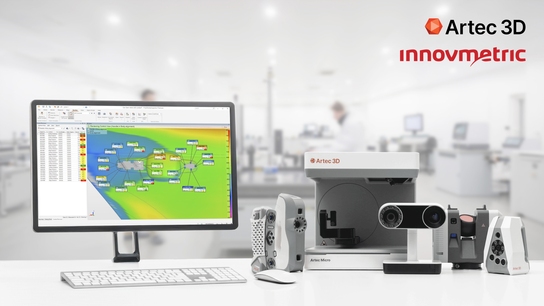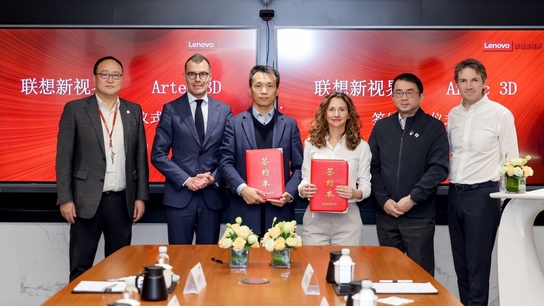Artec 3D scanners used for historical preservation at the site of China’s famous Terracotta Army
Researchers from Xi’an’s Northwest University utilize professional handheld scanners to digitally capture skeletal remains at the site of Emperor Qin Shi Huang’s tomb.
Palo Alto, Calif. October 19, 2016 – Artec 3D, a developer and manufacturer of professional 3D hardware and software, today announces that its light-based handheld 3D scanners were utilized by researchers at Northwest University in Xi’an, China to accurately capture the shape and texture of the skulls and other bones of young females that were found at burial pits located around the Mausoleum of the First Qin Emperor, Qin Shi Huang. This necropolis became world famous after the discovery of the first statues of warriors guarding the emperor’s tomb, collectively known as the Terracotta Army, in 1974. Artec Studio software was among the programs used to develop high-resolution 3D models from the captured data.

Image courtesy of the BBC
This announcement comes amidst the surfacing of new research that indicates ancient Greek artists could have assisted in the design of China’s famous Terracotta Army. These new discoveries and scanning conducted using Artec’s technology were featured in the BBC’s most recent documentary titled, “The Greatest Tomb on Earth: Secrets of Ancient China.”
“The practice of 3D scanning has quickly become a vital tool for historical preservation both on site and in the lab,” said Artyom Yukhin, president and CEO of Artec 3D. “The ability to easily create a detailed 3D model is invaluable, when dealing with artifacts and remains that are over 2,000 years old and will inevitably degrade over time. The adoption of 3D scanning has also allowed archeology, paleontology and anthropology to become globally collaborative practices.”

Image courtesy of the BBC
“Artec Spider captured the texture of the bones with incredible detail that could be seen both during the actual scanning process and in the final 3D model,” said Li Kang, Researcher for Northwest University’s Department of Geology. “In addition to using Artec’s technology for heritage preservation, the University also collaborates with police and uses Artec scanners for facial reconstruction.”
The university’s staff created a medical database of more than 2,000 CT images of heads of Chinese people. Then the 2,000 samples were turned into 3D mesh models of human faces and skulls in order to use these models for the facial reconstruction of unidentified skulls, such as unearthed ancient remains or victims of crimes.

Image courtesy of the BBC
Artec’s structured-light, full-color scanners capture the geometry of an object by projecting light in a pattern that allows for distance to be calculated through triangulation. The Spider, which was chosen for this project, has a 3D resolution of up to 0.1 mm with 0.05 mm accuracy. This allows for complex textures, such as those of bones, to be captured with the utmost detail. Artec’s high resolution 3D scanners achieve this high level of precision through hybrid geometry and color data capture, eliminating the need for sticking targets to the object being scanned, which could prove harmful to historical objects.
In addition to the work being done by Northwest University, Artec’s 3D scanners have also been used to create 3D scans during other historically important projects. These include the digitalization of numerous artifacts in museums around the world such as the human ancestor Homo naledi in the Rising Star cave system, President Obama for the creation of his presidential bust, and 1.8 million-year-old fossils found at Turkana Lake, in Kenya, alongside renowned paleontologist Louise Leakey.

Image courtesy of Northwest University




